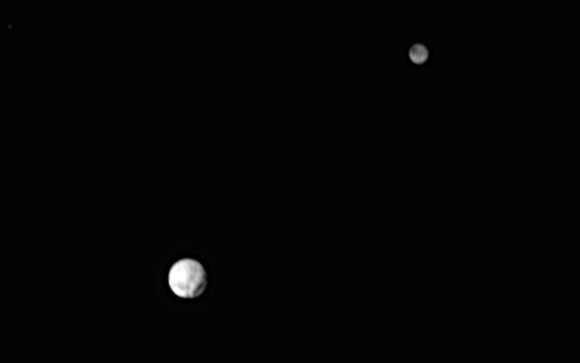Books
Books that I have written.
Books that I have written.
Podcasts and Videos in which I have appeared or which I have created.
Dynamical systems simulation in Python. Includes both continuous and stochastic simulation.
An introductory stats book from a Bayesian perspective, including Python software.

I’m always interested in the process of evaluation, especially for professors. It is common to have student evaluations performed at the end of the semester, and there are endless …
#articles

I was listening to the Dogma Debate episode “Does God Really Love You?” with Blake Giunta, and was really struck by the structure of the discussion. I have dealt with …
#articles

I’ve been seeing a lot of talk about the supposedly incompetent response by “accident reconstruction expert”, as shown in this video. You can read one response in the opinion …
#articles

So the Mr. Deity video, part two of his new series has an interesting point. The point is that arguments are not evidence. He says that in all of the …
#articles

I love the idea of New Year’s Day. It’s a time for reflection, contemplation, self improvement. I realize that it is technically just another day, and that one …
#articles

So, I've been off the blog because of new job duties that overwhelmed me for a while. I enjoy the new year as a way of starting again, clean slate …
#articles

I was reading a list of things Neil deGrasse Tyson doesn't understand about Interstellar and was reminded about some of the things I don't like about Neil deGrasse Tyson. Let …
#articles

There are a number of questions designed specifically to not have answers or statements designed to be imponderable. Some of them actually do have answers, it seems, when you …
#articles

I was listening to the Giunta-Dillahunty debate, "Does God Exist?", and the subsequent appearance of these two on the Dogma Debate show and felt there was enough there that required …
#articles

As a scientist, I don't typically hold philosophy in that high regard. It has its uses, but can easily devolve into a word game with no real substance. My basic …
#articles

I was listening to the Giunta-Dillahunty debate, "Does God Exist?", and the subsequent appearance of these two on the Dogma Debate show, and was struck by the structure of the …
#articles

In anticipation of the New Horizons close flyby of Pluto in a little over a week on July 14, 2015, I read with interest the article "Calculating Pluto’s Mass …
#articles

In another post, I outlined how the drop in pressure was entirely consistent with what was measured with the laws of physics. That post was done when the only data …
#articles

As part of the Unbelievable Project, I was listening to the Unbelievable podcast on the definition of atheism, whether it is "lack in a belief in God" or "believing that …
#articles

After my post about the misquoting Hume and the miraculous, I was recommended to read the Stanford Encyclopedia of Philosophy article on miracles where it supposedly explains why "Hume was …
#articles

In a Salon article entitled "New Atheism’s fatal arrogance: The glaring intellectual laziness of Bill Maher & Richard Dawkins", Sean Illing outlines what he seems to think are knock-down arguments …
#articles

I continue with my critique of the article Why I am not a Bayesian by Greg Mayer, where complains about the Bayesian approach to inference, and then espouses Maximum Likelihood …
#articles

I was reading the article Why I am not a Bayesian where Greg Mayer complains about the Bayesian approach to inference, and espouses Maximum Likelihood methods. There is much to …
#articles

There's a very nice paper, Bayesian estimation supersedes the t test. John K. Kruschke, Journal of Experimental Psychology: General, 2013, v.142(2), pp.573-603. The methods described provide at …
#articles

E. T. Jaynes wrote extensively about Bayesian inference, and one of his strategies was to use a "Galileo's telescope for statistics", such as outlined in his paper on Confidence Intervals …
#articles

I recall a comment in E. T. Jaynes' book about Laplace, where he realized that most of the arguments against the claims of Laplace were arguments against things Laplace never …
#articles